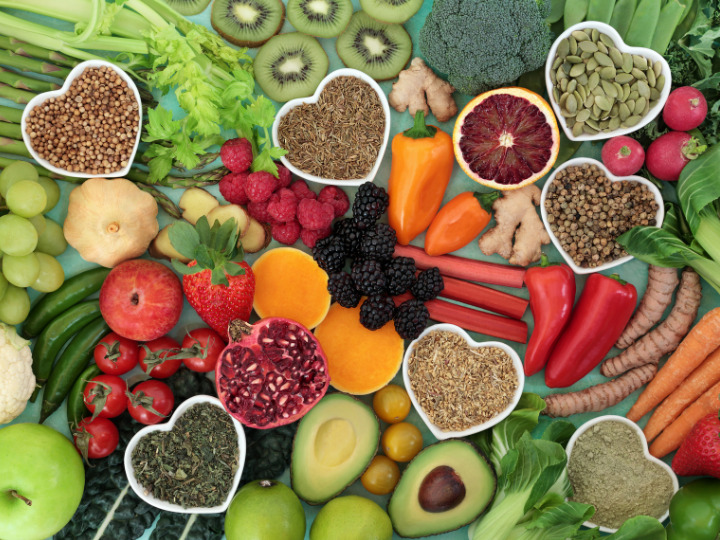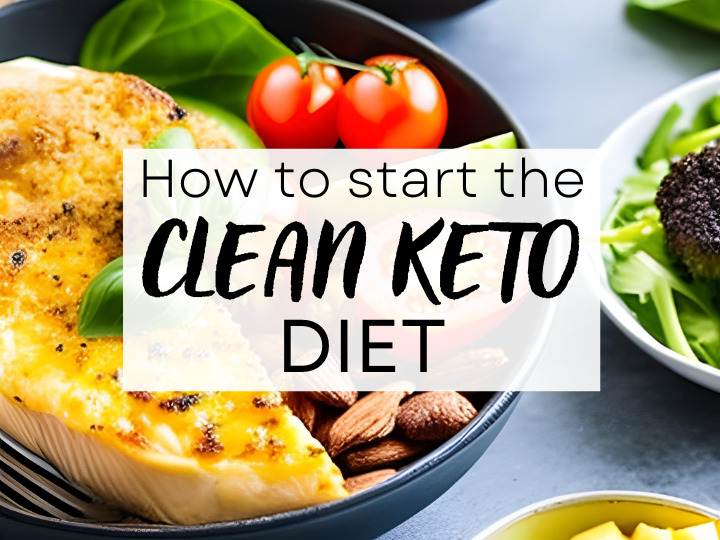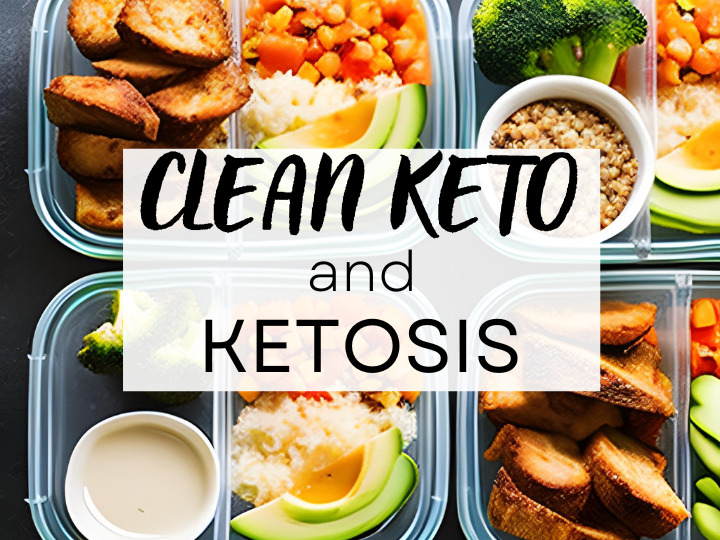
A Comprehensive Guide to Heart Healthy Keto: Clean Keto for Heart Health

Written by Brandon
June 6, 2023
Key Points
- A heart-healthy keto diet focuses on consuming healthy fats, lean proteins, and vegetables while limiting carbohydrates, especially those from processed and refined sources.
- A heart-healthy keto diet can help reduce inflammation, lower blood sugar levels, and improve cholesterol levels, all of which can benefit heart health.
- To follow a heart-healthy keto diet, it is essential to emphasize healthy fats, such as those found in fish, nuts, and olive oil, and limit saturated and trans fats found in processed foods and red meat.
Heart health is a critical aspect of overall health, and maintaining it requires a healthy diet. The ketogenic diet, or keto diet, has become increasingly popular in recent years as a means of weight loss and improving overall health. However, some people are concerned about the potential negative effects of a high-fat, low-carb diet like the keto diet on heart health. In this article, I will explore the concept of a heart-healthy keto diet and discuss its benefits, foods to eat and avoid, and how to follow it.
A heart-healthy keto diet is a low-carb, high-fat diet that focuses on consuming healthy fats, lean proteins, and vegetables while limiting carbohydrates, especially those from processed and refined sources. This type of diet can help reduce inflammation, lower blood sugar levels, and improve cholesterol levels, all of which can benefit heart health. However, it is essential to follow a heart-healthy version of the keto diet that emphasizes healthy fats, such as those found in fish, nuts, and olive oil, and limits saturated and trans fats found in processed foods and red meat.

What is a Heart Healthy Keto Diet?
As someone who has been following the keto diet for a while now, I have come to realize that it’s not just about eating low-carb, high-fat foods. It’s also about making sure that the foods you’re eating are good for your heart health. In this section, I will explain what a heart healthy keto diet is and how you can follow it.
The keto diet is a low-carb, high-fat diet that has become increasingly popular in recent years. It’s based on the idea that if you eat fewer carbs, your body will start burning fat for energy instead of glucose. This process is called ketosis, and it’s what gives the diet its name.
However, not all fats are created equal. To start a heart healthy keto diet, you need to focus on eating healthy fats, such as monounsaturated and polyunsaturated fats. These fats can help lower your cholesterol levels and reduce your risk of heart disease.
In addition to healthy fats, you also need to make sure you’re getting enough protein. Protein is important for maintaining muscle mass and keeping you feeling full. However, it’s important to choose lean sources of protein, such as chicken, fish, and tofu, to avoid consuming too much saturated fat.
To summarize, a heart healthy keto diet involves eating low-carb, high-fat foods that are rich in healthy fats and lean sources of protein. By following this type of diet, you can enjoy the benefits of ketosis while also promoting heart health.

Benefits of a Heart Healthy Keto Diet
As someone who has been following a heart healthy keto diet for some time now, I have experienced first-hand the benefits of this way of eating. Here are some of the benefits that I have personally noticed and that are supported by scientific research:
Weight Loss
One of the most well-known benefits of a keto diet is weight loss. By reducing carbohydrates and increasing healthy fats and proteins, the body is forced to burn fat for energy instead of glucose. This can lead to significant weight loss, especially in the first few weeks of starting the diet.
Improved Blood Sugar Control
The keto diet has been shown to improve blood sugar control in people with type 2 diabetes. By reducing carbohydrate intake, the body produces less insulin, which helps to lower blood sugar levels. In addition, the keto diet can help to improve insulin sensitivity, which can further improve blood sugar control.
Improved Cholesterol Levels
Contrary to what some people may believe, the keto diet can actually improve cholesterol levels. Studies have shown that the diet can increase levels of HDL cholesterol (the “good” cholesterol) while decreasing levels of LDL cholesterol (the “bad” cholesterol) and triglycerides.
Reduced Cardiovascular Risk Factors
Following a heart healthy keto diet can also reduce cardiovascular risk factors such as high blood pressure and inflammation. By reducing carbohydrate intake, the body produces less insulin, which can help to lower blood pressure. In addition, the diet is rich in healthy fats and proteins, which can help to reduce inflammation in the body.
Increased Energy Levels
Many people who follow a keto diet report increased energy levels and improved mental clarity. This is because the body is burning fat for energy instead of glucose, which can help to stabilize blood sugar levels and prevent energy crashes.
Overall, a heart healthy keto diet can provide numerous health benefits, including weight loss, improved blood sugar control, improved cholesterol levels, reduced cardiovascular risk factors, and increased energy levels. However, it is important to speak with a healthcare professional before starting any new diet or exercise program.

Foods to Eat on a Heart Healthy Keto Diet
As someone who follows a heart healthy keto diet, I have found that there are many delicious and nutritious foods that I can enjoy while still maintaining my health goals. Here are some of the best foods to eat on a heart healthy keto diet:
Protein Sources
Protein is an essential nutrient for maintaining muscle mass and aiding in the repair and growth of tissues. When following a heart healthy keto diet, it is important to choose lean protein sources that are low in saturated fat. Some great protein sources include:
- Fish, such as salmon and tuna, which are high in heart-healthy omega-3 fatty acids
- Nuts and seeds, such as almonds and chia seeds, which are rich in protein and healthy fats
- Legumes, such as lentils and chickpeas, which are a good source of plant-based protein
- Lean meats, such as chicken and turkey, which are low in saturated fat
Healthy Fats
While it may seem counterintuitive, consuming healthy fats is an important part of a heart healthy keto diet. These fats can help lower cholesterol levels and reduce the risk of heart disease. Some healthy fat sources include:
- Avocado, which is high in monounsaturated fats and fiber
- Olive oil, which is rich in heart-healthy polyunsaturated fats
- Butter made from grass-fed cows, which is a good source of conjugated linoleic acid (CLA)
- Cheese, which is high in protein and calcium
Vegetables and Fruits
Vegetables and fruits are an important part of any healthy diet, including a heart healthy keto diet. They are rich in vitamins, minerals, and fiber, and can help reduce the risk of heart disease. Some great vegetable and fruit options include:
- Leafy greens, such as spinach and kale, which are high in vitamins and minerals
- Berries, such as strawberries and blueberries, which are low in carbs and high in antioxidants
- Cruciferous vegetables, such as broccoli and cauliflower, which are high in fiber and vitamin C
- Tomatoes, which are high in lycopene, a powerful antioxidant
Whole Grains
While a traditional keto diet is low in carbs, it is still important to include some whole grains in a heart healthy keto diet. Whole grains are rich in fiber, which can help reduce cholesterol levels and improve heart health. Some great whole grain options include:
- Quinoa, which is high in protein and fiber
- Brown rice, which is a good source of complex carbs and fiber
- Whole wheat bread, which is a good source of fiber and B vitamins
Overall, a heart healthy keto diet can be a great way to improve your health and reduce your risk of heart disease. By focusing on lean protein sources, healthy fats, vegetables and fruits, and whole grains, you can create a well-rounded and nutritious diet that supports your heart health goals.

Foods to Avoid on a Heart Healthy Keto Diet
As someone who follows a heart healthy keto diet, I know that it’s important to avoid certain types of foods. In this section, I’ll cover some of the main foods to avoid on this diet, including saturated and trans fats, processed foods, and high-carb foods.
Saturated and Trans Fats
One of the main reasons why the keto diet can be unhealthy for the heart is because it often involves consuming large amounts of saturated and trans fats. These types of fats can raise your cholesterol levels and increase your risk of heart disease.
To avoid these types of fats, it’s important to limit your intake of red meat, butter, cheese, and other high-fat dairy products. Instead, focus on getting your fats from healthier sources, such as nuts, seeds, and avocados.
Processed Foods
Another type of food to avoid on a heart healthy keto diet is processed foods. These foods are often high in sugar, salt, and unhealthy fats, and can contribute to weight gain and other health problems.
To avoid processed foods, focus on eating whole, nutrient-dense foods such as vegetables, fruits, nuts, and seeds. If you do eat processed foods, make sure to read the labels carefully and choose options that are low in sugar and unhealthy fats.
High-Carb Foods
Finally, it’s important to avoid high-carb foods on a heart healthy keto diet. Carbohydrates can raise your blood sugar levels and contribute to weight gain, which can increase your risk of heart disease.
To avoid high-carb foods, focus on eating low-carb vegetables such as broccoli, cauliflower, and spinach, as well as healthy fats such as olive oil, coconut oil, and nuts. Avoid foods such as bread, rice, pasta, and soda, which are high in carbs and can contribute to weight gain and other health problems.
By avoiding these types of foods, you can help maintain a heart healthy keto diet and reduce your risk of heart disease.

How to Follow a Heart Healthy Keto Diet
As someone who follows a heart healthy keto diet, I know how important it is to plan my meals carefully, especially when eating out. Here are some tips that have helped me stay on track:
Meal Planning
When planning my meals, I focus on incorporating healthy fats, lean proteins, and plenty of non-starchy vegetables. I avoid processed foods and added sugars, which can increase inflammation and contribute to heart disease.
To make meal planning easier, I like to create a weekly menu and grocery list. This helps me stay organized and ensures that I have all the ingredients I need on hand. I also like to batch cook and meal prep on the weekends, so I have healthy meals ready to go during the week.
Eating Out
Eating out can be challenging on a heart healthy keto diet, but it’s not impossible. When dining out, I look for menu items that are high in healthy fats and protein, and low in carbs.
Some of my go-to options include:
- Grilled salmon or chicken with a side of non-starchy vegetables
- A salad with plenty of healthy fats, such as avocado or nuts, and a protein source like grilled chicken or shrimp
- A bunless burger with a side salad or non-starchy vegetables
It’s also important to be mindful of hidden sources of added sugars and unhealthy fats, such as dressings, sauces, and marinades. I always ask for these on the side, so I can control how much I consume.
Supplements
While I try to get most of my nutrients from whole foods, I also take a few supplements to support my heart health on a keto diet. These include:
- Omega-3 fish oil: This supplement is rich in healthy fats that can reduce inflammation and improve heart health.
- Magnesium: This mineral is important for heart health and can be difficult to get enough of on a keto diet.
- CoQ10: This antioxidant can help protect against oxidative stress and support heart health.
It’s important to talk to a healthcare provider before starting any new supplements, as they can interact with medications and have side effects.
By following these tips for meal planning, eating out, and supplements, I’m able to maintain a heart healthy keto diet that supports my overall health and well-being.
Risks and Side Effects of a Heart Healthy Keto Diet
As with any diet, there are potential risks and side effects to consider when following a heart healthy keto diet. It is important to consult with a healthcare professional before starting any new diet, especially if you have any pre-existing health conditions.
Short-Term Side Effects
Short-term side effects of a heart healthy keto diet may include constipation, nausea, vomiting, fatigue, and lightheadedness. These side effects are often referred to as the “keto flu” and occur as the body adjusts to the low-carbohydrate, high-fat diet. Drinking plenty of water and increasing salt intake can help alleviate these symptoms.
Long-Term Effects
While there is some evidence to suggest that a heart healthy keto diet can improve cholesterol levels and reduce cardiovascular risk, there are also potential long-term effects to consider. One concern is the production of ketone bodies, which can put strain on the liver and lead to potential liver problems.
Another concern is the potential impact on heart health. While some studies suggest that a heart healthy keto diet can improve cholesterol levels, other studies have found that it may increase the risk of heart problems and stroke.
It is also important to consider the potential impact on the brain. The brain relies on glucose for energy, and a heart healthy keto diet may not provide enough glucose for optimal brain function.
Overall, the American College of Cardiology and American Heart Association do not recommend a heart healthy keto diet as a long-term solution for weight loss or improving cardiovascular health. It is important to consider the potential risks and side effects before starting this diet and to consult with a healthcare professional.
FAQ about Keto Diet Healthy for your Heart
Is keto safe for heart health?
It is important to consult with your doctor before starting any new diet, especially if you have a history of heart disease or other health conditions.
What are heart healthy keto foods?
Heart healthy keto foods include fatty fish such as salmon, nuts and seeds, avocados, olive oil, and non-starchy vegetables like spinach and broccoli. These foods are high in healthy fats and fiber, which can help improve heart health.
Can keto reverse heart disease?
There is limited research on whether the keto diet can reverse heart disease. However, some studies have shown that a low-carb, high-fat diet can help improve certain risk factors for heart disease, such as blood pressure and cholesterol levels.
How to lower cholesterol on keto?
To lower cholesterol on keto, focus on eating heart healthy fats like those found in fatty fish, nuts, and seeds. Avoid saturated and trans fats found in processed foods and red meat. Additionally, increasing fiber intake through non-starchy vegetables and supplementing with psyllium husk can also help lower cholesterol levels.
Which is the best diet for heart health?
There is no one-size-fits-all answer to this question. However, a heart healthy diet should focus on whole, nutrient-dense foods like fruits, vegetables, whole grains, lean proteins, and healthy fats. It is also important to limit processed foods, added sugars, and saturated and trans fats.
Is a low carb diet heart healthy?
A low carb diet can be heart healthy if it is rich in nutrient-dense foods like non-starchy vegetables, healthy fats, and lean proteins. However, it is important to consult with your doctor before starting any new diet, especially if you have a history of heart disease or other health conditions.
About the Author
 Hello, I'm Brandon, a passionate foodie, clean keto enthusiast, and creator of Clean Keto Meal Plan. I'm dedicated to providing delicious and nutritious recipes that fit within a keto lifestyle. I strive to create meals that are not only low-carb, but also use clean, whole food ingredients for optimal health and wellness. Join me on my journey towards better health through clean eating and a keto lifestyle.
Hello, I'm Brandon, a passionate foodie, clean keto enthusiast, and creator of Clean Keto Meal Plan. I'm dedicated to providing delicious and nutritious recipes that fit within a keto lifestyle. I strive to create meals that are not only low-carb, but also use clean, whole food ingredients for optimal health and wellness. Join me on my journey towards better health through clean eating and a keto lifestyle.
Affiliate Disclosure:
This post may contain affiliate links. Click here for the full disclosure statement.




